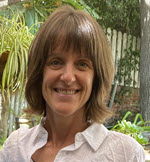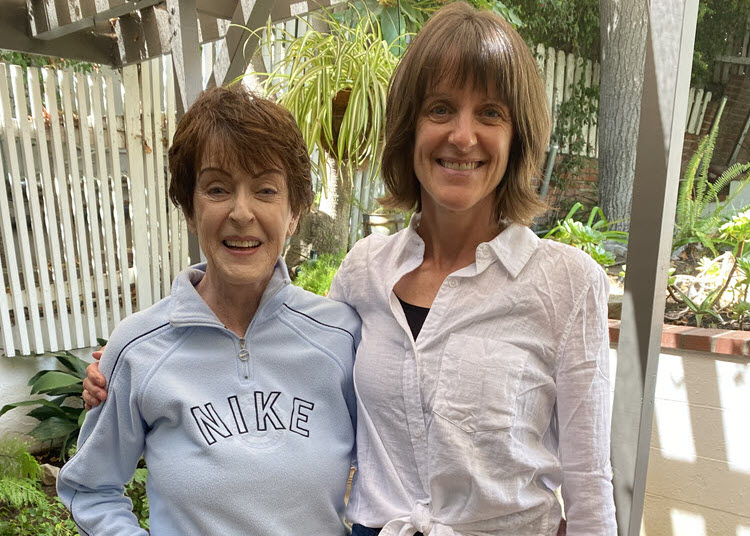When the dementia journey with my mom began in 2020, I became keenly aware of the underlying current of dread and distress that comes with caregiving. Anything can go sideways at any time, whether you are nearby or not, which is why when I saw the call coming in from memory care at 11:00 pm, I thought, Oh, No.
Mom was in her mid-70s and in perfect health living in California while I lived on the East Coast. I was distance caregiving before I even knew what a caregiver was.
It was in 2020 when a couple of family members showed concerns over Mom’s strange behavior. I had witnessed a few of them over the past couple of years and dismissed them as “that’s weird moments” and moved on. Alzheimer’s was not on my radar and I had no idea how to deal with it.
Socialization is one of the key lifestyle components experts prescribe for deterring the onset of dementia, so when Mom had her baseline neurology appointment in March of 2020 and she refused to join us in NJ to be part of our pandemic bubble, it was troubling. She remained isolated at home while her brain deteriorated.
She got the official Alzheimer’s diagnosis in October of 2021. The DMV promptly revoked her driver’s license. She was having none of it. Multiple flights, fights and panic attacks ensued as my mom’s older sister and I created a plan to move her out of the house and into memory care. It took a combination of family, friends, paid professionals and considerable TIME to get it worked out. It was chaotic.
Mom spent two years in memory care in MD, near her sister, and finally moved to AZ to be near me in January 2024. There was an adjustment period, but she became familiar with the new surroundings and caregivers and began to settle in.
In March 2024, my husband and I drove to Phoenix to see our beloved NJ Devils play the Coyotes and celebrate my birthday. I had just crossed the threshold into the stadium when I received a call from memory care notifying me that Mom had fallen. Fortunately, the fall was not severe and they continued to monitor her and kept me informed. She would be fine.
My family flew to New Jersey in May 2024 for an extended trip around Memorial Day. I was nervous about leaving Mom, but knew she was in good hands. Two days shy of our return, I received a late-night call from the caregivers. Mom was slurring her words and short of breath. Her pulse oxygen level was dangerously low. They wanted permission to call the paramedics. I said go ahead and waited for the subsequent call.
In the meantime, late at night, I made several attempts to get ahold of my aunt, a seasoned nurse with half a century of experience. She did not answer.
The caregivers called me back and the fire chief said Mom was fine. Her face was pink, she was coherent, and they advised against going to the ER, but would take Mom if I wanted them to. Decision time.
I trusted the caregivers because they know my mom. I trusted the fire chief because he sees these scenarios play out every day. I believed both had Mom’s best interest in mind. Since Mom would not have anyone to accompany her to the ER and she would be confused, alone, and shuffled around, I advised against taking Mom. I asked them to put her in her own bed and contact me if anything changed and booked a flight early the next morning. Mom was peacefully sleeping in her bed when I arrived. We discovered the culprit was a Urinary Tract Infection (UTI), a very common occurrence for women, but potentially deadly for seniors.
Mom rallied with meds and time, but I seriously thought this might be the end. I don’t regret my decision to skip the ER that night. It could have been the wrong call, but as always, I simply do the best I can as a caregiver with what I know in the moment.
Whether you are distance caregiving or caregiving under one roof, there will be crises. We can’t control what happens as our elder ages but making time for yourself is under your control. Build a support network and don’t hesitate to reach out for respite. Remember, we are doing the best we can with the resources we have and we are not alone. www.daughterhood.org is one of the best caregiver virtual support networks.
Disclaimer: The material in this blog is for educational purposes only. It is not intended to replace, nor does it replace, consulting with a physician, lawyer, accountant, financial planner or other qualified professional.
Deb is the author of “Your Caregiver Relationship Contract and “A Relationship Contract for Dementia Caregivers.” Your Caregiver Relationship Contract is available in both English and Spanish. It explains how to have an intentional conversation and the how unspoken expectations can cause problems during caregiving. A Relationship Contract for Dementia Caregivers explains how important it is to learn how your person wants to live their life out and how you, the caregiver are the most important person in this relationship, giving you tips and tricks for this journey.
Click here to learn more about Your Caregiver Relationship Contract or here for the Spanish version: Su Contrato de relación como cuidador de un ser querido. Click here to learn more about A Relationship Contract for Dementia Caregivers.
Deb is available as a caregiver consultant. She will answer the question: “Where do I start?” and find the resources to alleviate your stress. If you would like to invest a half hour to learn how she can help you, please contact her at: Free 30 minute consulting call

